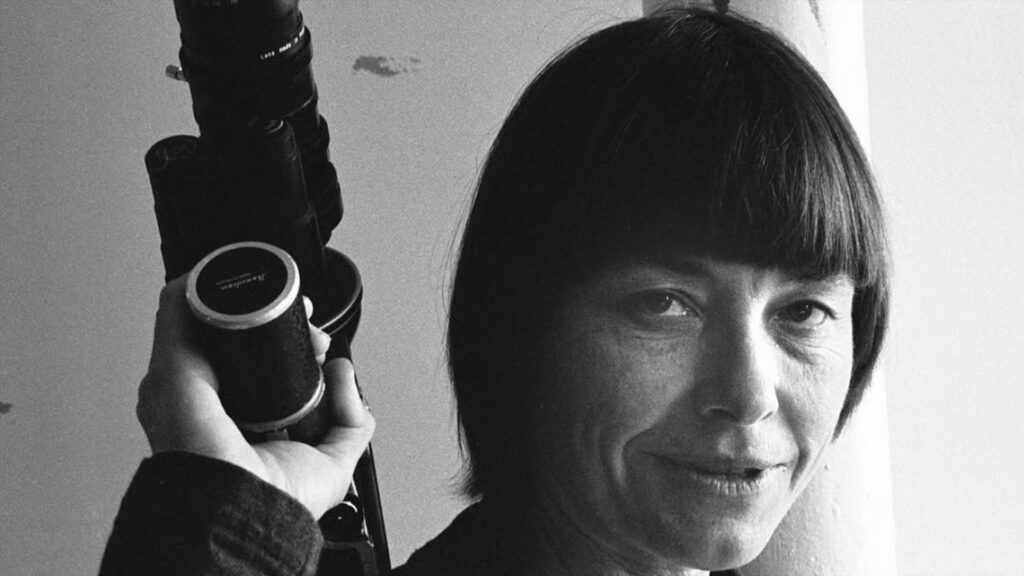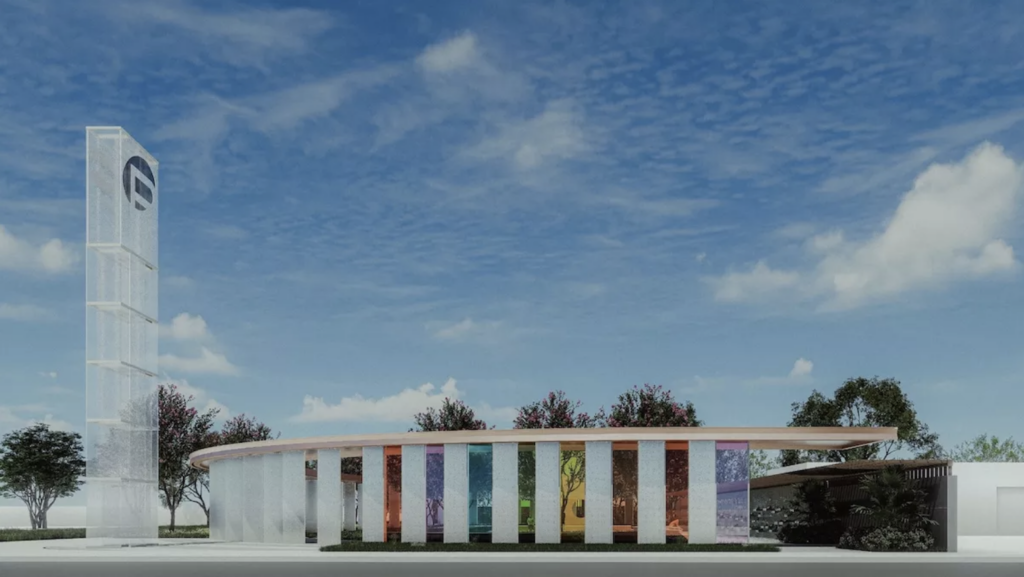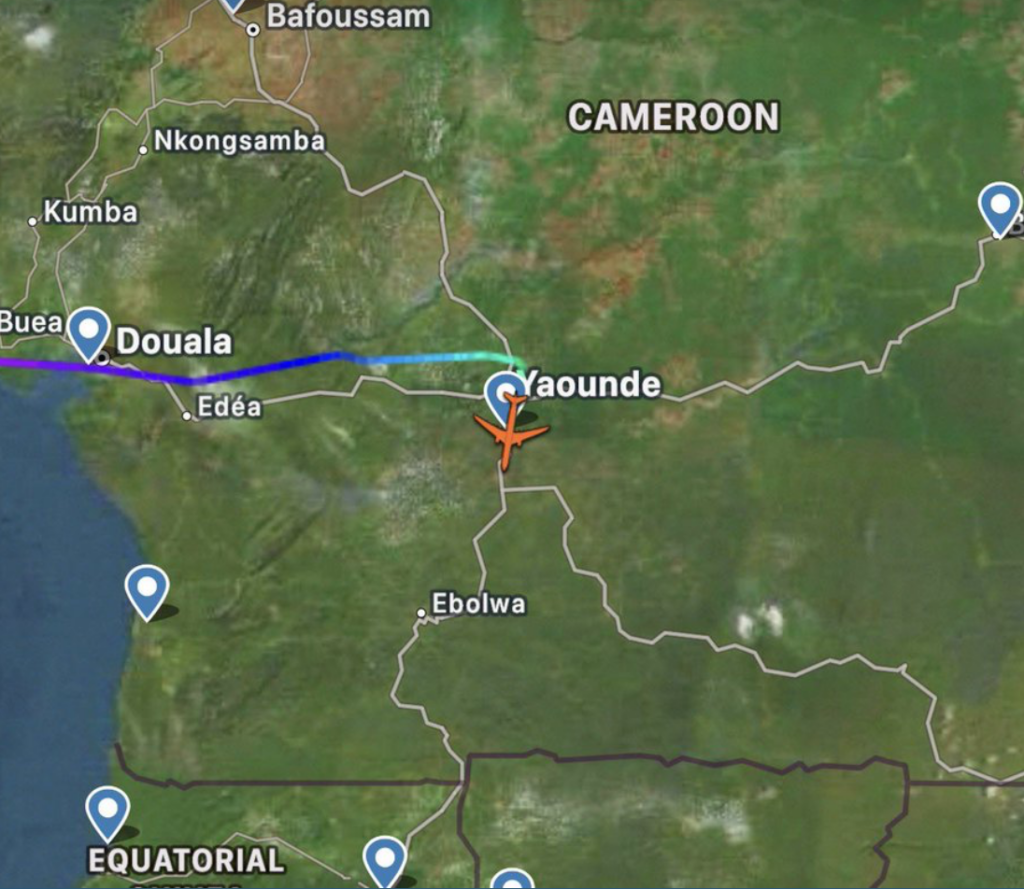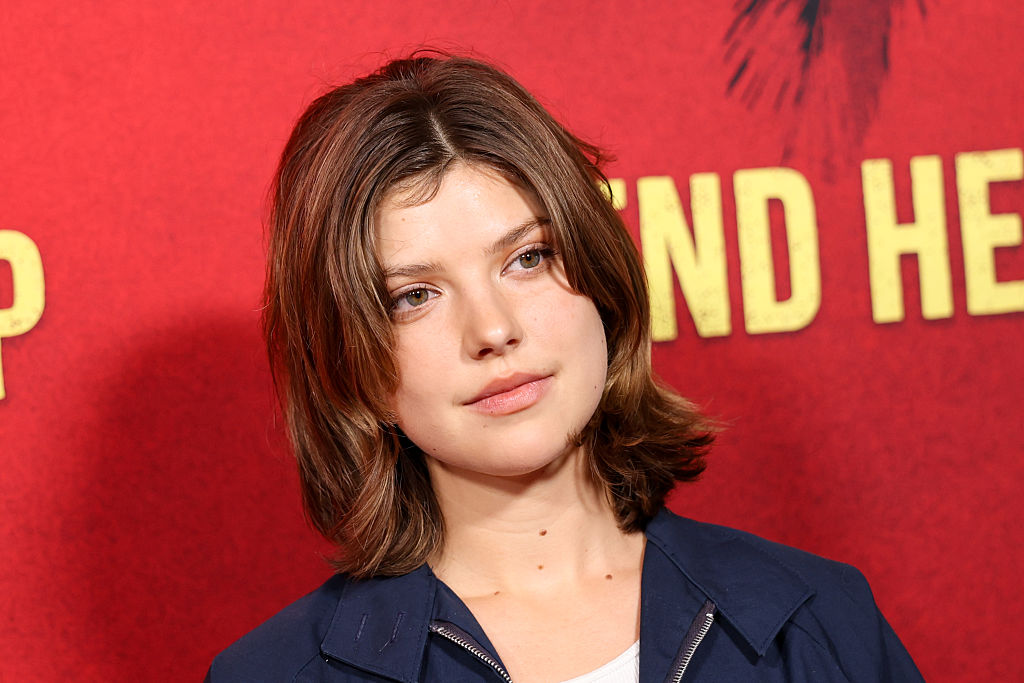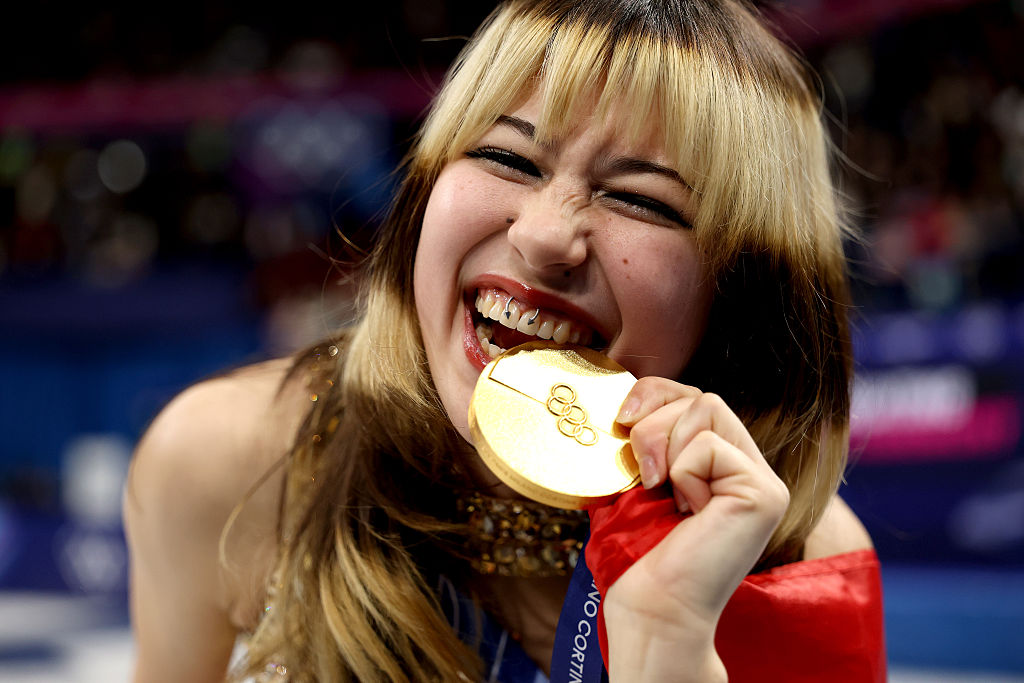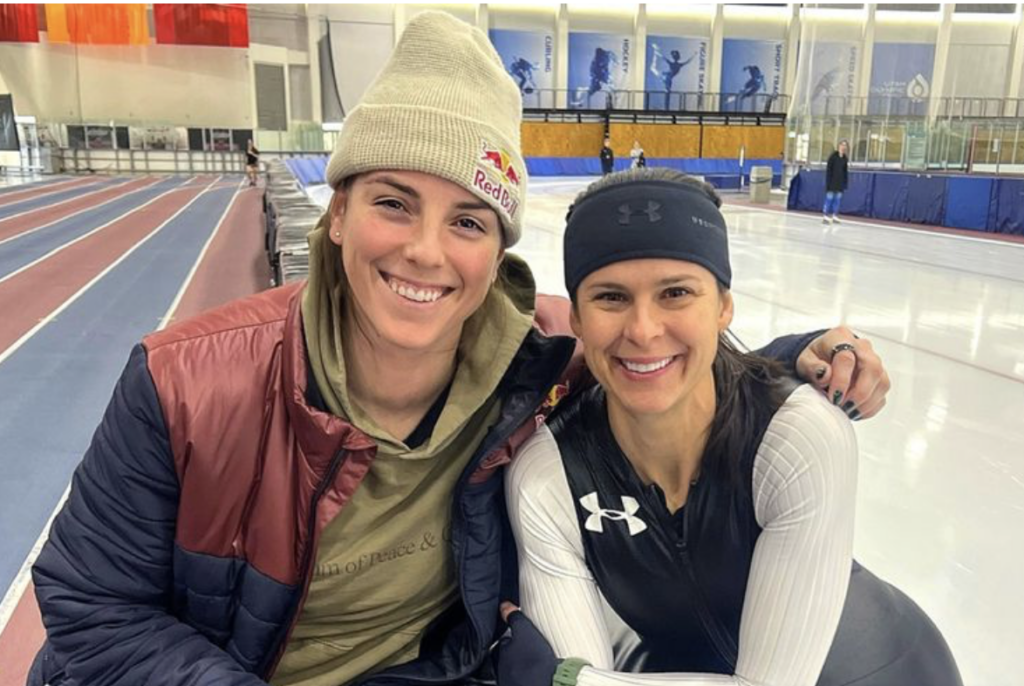Meet The Lesbian Burlesque Dancer Looking To Shake Up New York Nightlife
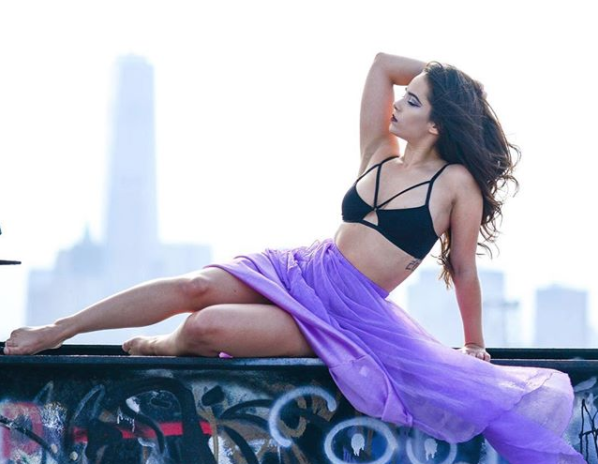
Scarlett Snow on why burlesque and the LGBTQ scene go together perfectly.

“How’s everybody doing tonight?” Miranda Snow, a.k.a. Scarlett Snow, asks the crowd at Henrietta Hudson, standing on a low stage in a glittering silver bustier, a silver-and-blue skirt-and-underwear combo, and not much else. Quickly realizing her error—it’s 4 o’clock in the afternoon—she hastily amends the question: “How’s everybody doing today?”
Her question kicks off the first-ever installment of Honey, a queer-focused burlesque brunch with a lineup of dancers to rival any nightclub’s. A circle of spectators rings the stage as dancers take turns performing strip-teases that involve everything from feathers to lace to glitter to audience participation. The crowd cheers and whistles, munching on lox-and-cream cheese sliders and veggie skewers, and sipping mimosas. “I was not prepared,” says Diondra Lane, tugging at the collar of her shirt, eyes fixed on a performer. “I’m sweating—I need to change.”
Lane has been a fan of Snow’s for a while; they first met at Henrietta’s, where Lane says Snow, who was working that night, took a few minutes and “just had a genuine conversation with us. She’s really nice—and she’s super talented.”
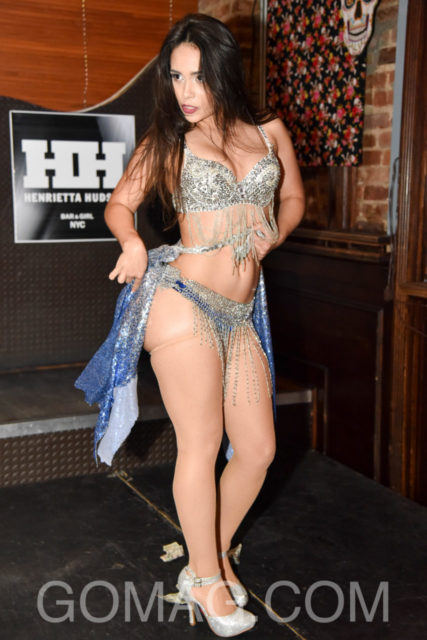
Hailing from Orlando, Florida, Snow landed in New York a year ago, “because I started dating this girl,” she admits, a little giggly. Since then she’s worked her way into the queer nightlife scene, scoring dancing slots at Henrietta’s, as well as Stonewall Inn through girlNATIONnyc. She’s still a member of Les Vixens, an Orlando-based groups that bills itself as “a post-modern rock n’ roll burlesque experience,” and to this day she travels with the Vixens to venues across Florida, from Gainesville to Tampa to Jacksonville. But now that she’s landed in the city, she’s determined to add a new dimension to nightlife that caters to queer women.
“For queer performers to promote the gay scene in New York I think is so vital,” she said, adding that burlesque can serve a dual purpose, both bringing joy to the audience and providing an “eye-opening experience” to those who may be new to the LGBTQ community. “I think back to when I saw my first burlesque show, and I really admired those dancers for their strength and their poise and how they carried themselves,” she said. “I think that that speaks volumes in the queer community because sometimes you need an example in order to be able to take that in your own life.” And although she says she’s looking to boost the “femme power” in a scene that’s disproportionately dominated by gay men, she’s also quick to say that her performances are meant to be inclusive. “I think the trans community, the non-binary community, the queer community—everyone can get something out of it,” she said.
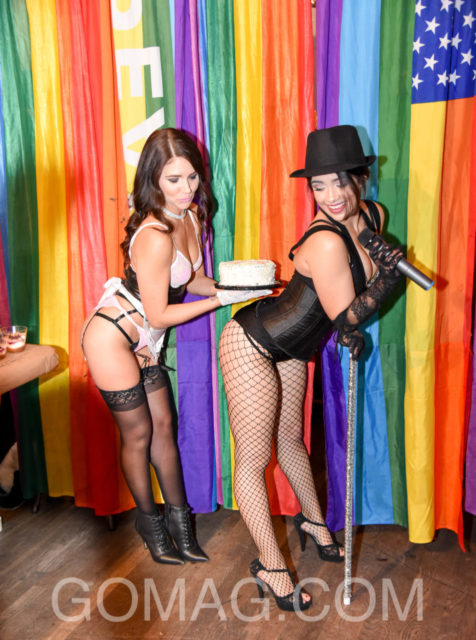
Snow, who has been dancing—first recreationally, then professionally—for 20 years now, first discovered the draw of burlesque when she was still in high school. She was working at a Starbucks in Orlando, and her manager, who knew she was a dancer, told her she should audition for the Vixens. “I was nervous at first—I was this ballet-contemporary jazz girl,” she said. “I didn’t know if I could do burlesque.” Then, she got in front of an audience. “Being on stage and stripping down to pasties and having this sensual opening was so liberating to me that it became addictive,” she explained. “Being able to move my audience is the ultimate high.”
Though her resume includes venues across the country, Snow has worked almost exclusively in queer-oriented spaces. She go-go danced in a non-queer space just once, an experience she called “uncomfortable.” “It’s almost like there are things that people expect of you,” she said, describing the way she felt in front of that audience: like an object, rather than an artist, or even an employee working to earn a paycheck. She feels less constrained in LGBTQ-oriented spaces, which she said is partly thanks to the drag community paving the way. Now, “the gays are used to having a show, and they’re used to respecting their performers,” she said. “If you’re tipping me, you’re tipping me because you’re enjoying my work; you’re not tipping me because you’re expecting something else.”
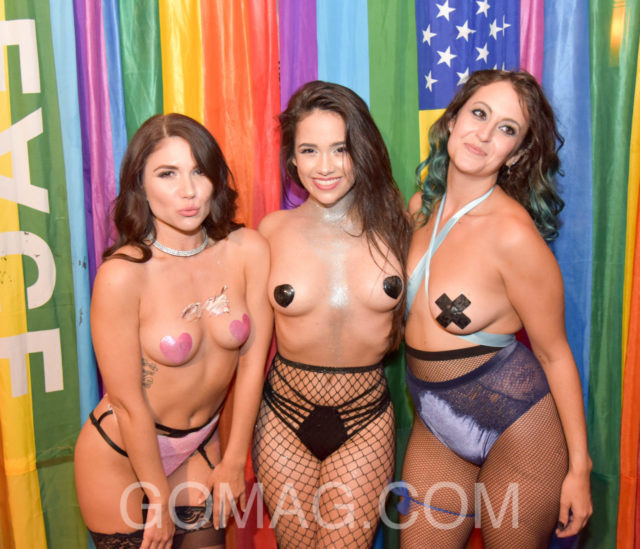
That much was clear as she and two other performers worked the perimeter at Henrietta’s, collecting dollar bills and grinding up on audience members. One corner sofa seat was particularly popular, drawing dancers’ attention so often that someone behind me exclaimed, “I wish I had her spot.”
Snow says she got a lot of good feedback from the brunch-time show, which was part of her process of experimentation as she sets out to identify the gaps in New York’s LGBTQ scene. Not that she’s looking to oust parties that are already in existence—“I am not looking to compete with anyone here,” she said. “I’m more so saying, ‘Hey, I know some shit, you know some shit, let’s make some beautiful shit together.’”







